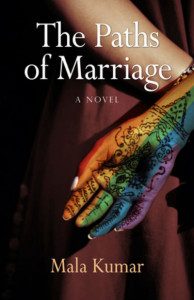 A beautifully written and well-paced saga following a family of Indian-American women across three generations and two continents.
A beautifully written and well-paced saga following a family of Indian-American women across three generations and two continents.
Starting with a story of a girl from the lowest caste in rural India who is refused even the most basic education, Ms. Kumar leads us on a journey that follows successive generations of women as they fight for their own education and try to make a place for themselves. In a culture that places huge restrictions on the roles of women, each generation faces a slightly shifting battle as their circumstances and the world around them change.
What makes this saga addictive is the impact each woman’s own battle has on the way she treats her daughters. Each woman wants to do her best, but has been molded by her own experience, forcing her daughter to take paths they had themselves fought against.
Ms. Kumar has managed to narrate each story in a different voice, a different style, to suit each generation and time period. Her descriptions, particularly of rural India, are exquisite. The sights, sounds, and smells of Chennai flow off the page like a pool of color to surround us.
Each character is detailed and endearingly whole. The secondary characters, mainly husbands/fathers, play an important role and are themselves well rounded—but always as a background to the main protagonists.
This is a saga about personal growth—each woman struggles with her own dreams and the real-world challenges thrown at them. Ultimately it is the combined wisdom of the generations that resolves the novel and releases them from the bounds of their own conventions.
The underlying theme in all these lives is prejudice. We are led from the most basic of existences through emigration, moving from caste prejudice to racial discrimination and isolation. While the menfolk battle away in the background to improve their own positions and that of their family—from fieldworker to doctor to neurosurgeon—the women battle for their personal place in the world against both cultural and social restrictions.
A thoughtful and interesting journey, punctuated with personal dramas and enough pace to keep it moving along, this is an excellent novel. It should speak to all women, whatever our cultural background, and—as with all great writing—should make us think. In this case the lesson is one of recognizing our mothers as individuals who had their own battles and made their own sacrifices.



